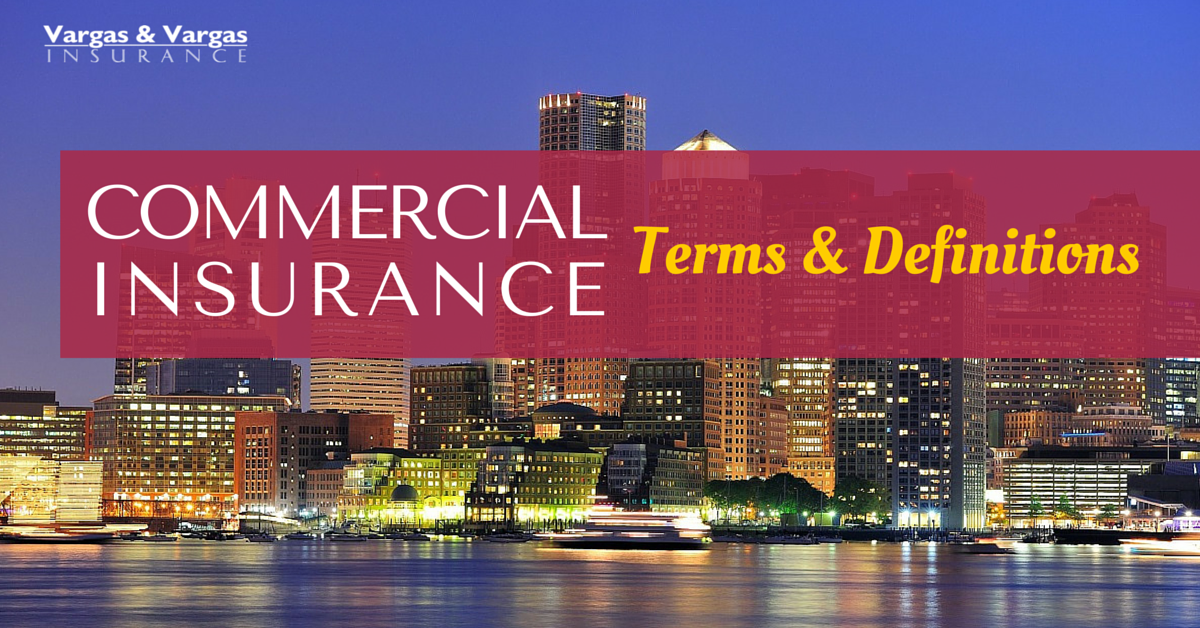In today’s world, business owners have a lot on their plates. The last thing that you need to do as a Massachusetts business owner is to take the time to learn the language of business insurance – that’s why Vargas and Vargas Insurance Agency is here! We want to help you insure your business without getting confused by insurance terms and jargon.
In an effort to aid local business owners in understanding their commercial insurance policies, we have compiled a list of common business insurance terms, along with their definitions.
Commercial Insurance – Financial protection for businesses. In the event of a covered loss, the business will be reimbursed for their loss according to their policy.
Commercial Property – The business’s property and physical belongings. Depending on the policy, this could include land, structures, and completed additions. Permanently installed fixtures and equipment are also typically considered part of the property. Furniture, equipment, and technology that is owned by the business but not permanently attached to the property are considered business personal property. In some cases, the personal property of others is also included as a part of the commercial insurance policy.
Covered Loss – Covered losses change from policy to policy, but come in two major categories: specified perils include a list of perils against which the policyholder is insured, and open perils cover all losses unless they are specifically listed as being excluded (this typically includes flood and earthquake, where a separate insurance policy must be purchased to ensure protection).
Actual Cash Value – In the event of a loss, a policy that pays actual cash value will often pay fair market value – a dollar amount that a reasonable seller would accept, and that a reasonable buyer would pay. Other ways that actual cash value are determined may vary, so ask your insurance agent for an explanation of the calculation before you purchase a policy.
Replacement Cost – The alternative to actual cash value is replacement cost. If your commercial insurance policy offers replacement cost for your business’s property, you will be reimbursed according to the amount of money it would cost to replace the lost or damages property with new property if like kind or quality in your local market.
Renewal – When your commercial insurance policy expires, you will likely be given the opportunity to continue that policy with the same insurance provider. Depending on your insurance provider, renewing your policy may qualify you for a discount on your insurance premium.
Deductible – When you report a loss, you will be reimbursed for your loss after you cover the deductible – the portion of the loss that the insured is responsible for paying before insurance benefits are payable. Lowering your deductible will often raise your insurance premium, and vice versa.
Is there a Massachusetts commercial insurance term that you don’t understand, and that isn’t listed here? If so, ask one of the Vargas and Vargas business insurance experts about the term by calling 617-298-0655. We are here to help you understand your insurance coverage, and we are always happy to answer any and all questions that you may have. Don’t wait – call us today!













